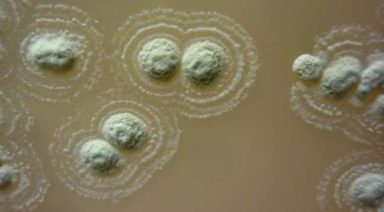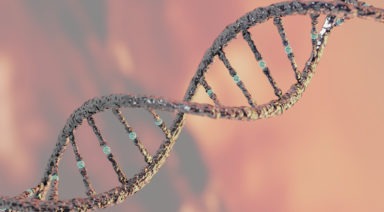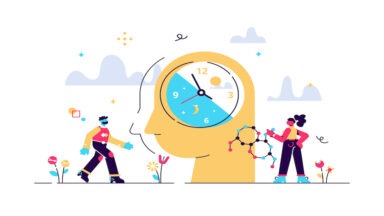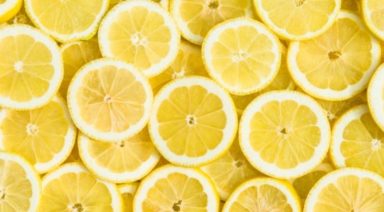Herbs And Supplements That Can Heal Or Awaken Your Thyroid
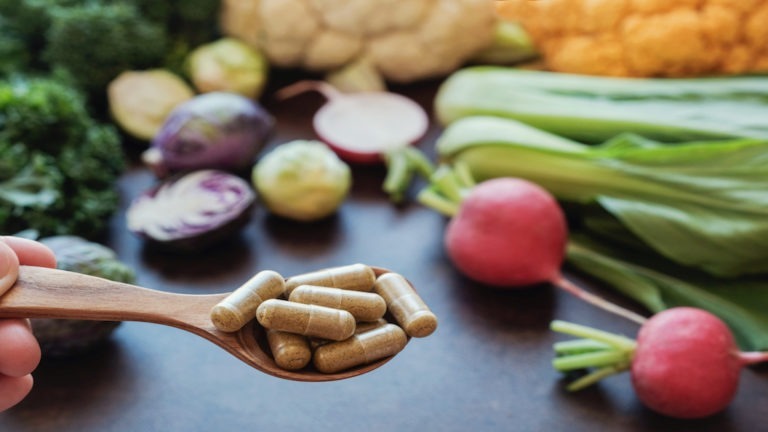
One of the key drivers and actors behind your emotions and emotional intelligence is your thyroid. Resting below your Adam’s apple, and along the front and sides of your windpipe, the thyroid has two squishy compartments connected by a similarly textured bridge. Shaped like a butterfly, this gentle and vital friend appears to elevate your breath and give flight to your voice.
The thyroid might hold the key to the evolution of your relationships, consciousness, and sense of Self. Even if your thyroid appears to be on her last breath, she is waiting to be healed. While this might take some time, effort, patience, and inward reflection, it’ll be worth it. Your thyroid processes experiences and information akin to your heart. When you love, your thyroid loves. When you breathe, so does this lovely and powerful little organ.
Your thyroid is hyper-aware and connected to the other realms, unlike any of your other glands and organs. It might also be providing you with helpful information on how to live, love, heal and thrive.
As with all things related to your health, seek the help of a doctor, D.O., or nutritionist to help you understand, treat, and heal your body. The thyroid is a particularly complex organ, so as you pursue its healing, be careful, be gentle, and have patience.
How Does The Thyroid Work?
The thyroid gland uses the iodine in your body (sourced from food and supplements) to produce two vital hormones: T3 (Triiodothyronine) and T4 (Thyroxine). Your pituitary gland, nestled in your brain, is the thyroid’s master and the gatekeeper of TSH (Thyroid-Stimulating Hormone).
When your pituitary gland releases TSH into your bloodstream, your thyroid excretes hormones. When your pituitary gland detects low thyroid hormone levels, it releases more TSH. When it detects the opposite, it reduces its excretion of TSH. To diagnose thyroid problems, doctors will use blood tests to determine your levels of TSH, T4, T3, and sometimes RT3 (Reverse T3).
Thyroid Disease Dictionary
The thyroid is part of the endocrine system, which produces hormones that fuel many critical bodily functions. It can become damaged through heredity, repeated trauma, drug use, alcoholism, stress, and diet.
Symptoms of a damaged or weak thyroid include:
- Fatigue and weakness
- Feeling cold all the time
- Joint pain and muscle soreness
- Regularly feeling emotional or depressed
- Weight gain
- Slowed heart rate, movement, and speech
- Dry skin
- Heavy menstruation
- High cholesterol
- Anemia
- Loss of libido
- Recurring urinary and respiratory tract infections
There are several types of thyroid conditions and diseases, some of which are more difficult to heal than others.
Hypothyroidism
When the thyroid gland does not produce enough thyroid hormones (thyroxine) to keep your body in balance, it means the gland is under-active. Symptoms include fatigue, weight gain, cold sensitivity, constipation, memory loss, and muscle cramps.
Hyperthyroidism
An overactive thyroid occurs when your thyroid gland produces too much of the hormone thyroxine. This condition can cause heat intolerance, increased sweating, insomnia, decreased appetite, rapid heartbeat, irritability, nervousness, dizziness, and anxiety. You’ll see below that there are many natural supplements for Hyperthyroidism.
Grave’s Disease
This condition results in the overproduction of thyroid hormones, which can also cause Hyperthyroidism.
Hashimoto’s Disease
Also known as chronic lymphocytic thyroiditis (Hypothyroidism), Hashimoto’s disease causes your immune system to attack your thyroid. This causes it to underperform and then overcompensate, swinging back and forth in pendulum-like fashion. While this and other thyroid conditions tend to affect middle-aged women, they can all occur in anyone at any age.
Western Thyroid Medication
While doctors most often prescribe the drug knowns as synthetic thyroxine, a medication that’s identical to our T4 hormones, there are several ways to nurture and potentially heal your thyroid. The reason T3 is not always prescribed is that T4 will naturally convert to T3. That said, T3 is more potent and more effective than T4.
Levothyroxine (Synthroid): a synthetic version of T4 and the preferred treatment of hypothyroidism.
Liothyronine (Cytomel): a synthetic version of T3 sometimes used in the treatment of hypothyroidism. Some doctors avoid prescribing this because it can cause hormone toxicity and Hyperthyroidism in some cases.
Levothyroxine Alternative: DTE
When your thyroid is not functioning correctly, taking natural, Desiccated Thyroid Extract (DTE) can change your life. For many, they can provide excellent and effective alternatives to Levothyroxine and Liothyronine.
Desiccated thyroid is a thyroid gland extract, usually taken from a cow (bovine) or pig (porcine). Once extracted, DTE is dried and milled into a powder and made in the form of a daily pill at 75, 150, 300mg, and more.
Products in this category to consider include Thyroid-Gold from Natural Thyroid Solutions (my favorite), Armour Thyroid, and Nature Throid. In a U.S. NIH study that compared the effects of DTE and Levothyroxine, the vast majority of patients preferred DTE. Overall, these patients felt better over time and experienced weight loss when compared to the patients who used Levothyroxine.
DTE might also be better for your emotional and psychological well-being, which directly affects relationships, financial well-being, spiritual health, and personal growth.
Thyroid Support Supplements
Taken in moderation, these are the primary supplements found in most thyroid regiments:
- Selenium
- Iron (and Tyrosine)
- Vitamin B
- Vitamin D
- Zinc
- Probiotics
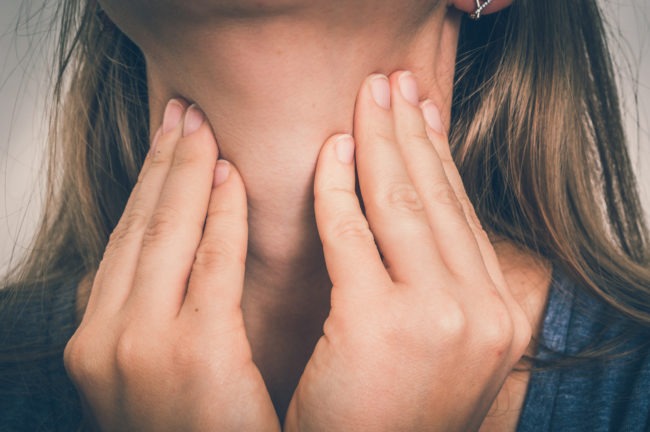
- Zinc, turmeric, Vitamins B and D (your best thyroid support vitamins), Iron, Selenium, Probiotics
- For Hashimoto’s only: Magnesium converts the inactive T4 thyroid hormone into the active form of T3, which some people find helpful
- Ayurvedic herbs for thyroid health: Ashwagandha, Guggul, Pepperin, Bauhinia Purpurea, Kanchanara (Bauhinia variegata, purple mountain ebony), Jatamansi, Brahmi, Shilajit, Gokshura, Punarnava
Remember, the best thyroid supplement is the one that gives you the energy and balance that leads to a peaceful and happy life.
Things to Limit Or Avoid
While some of these things are okay in moderation, be careful around how much you regularly consume.
- Avoid kale, broccoli, spinach, and cabbage
- Limit soy foods like tofu, tempeh, and edamame
- Starchy foods like sweet potatoes
- Limit fruits including peaches, pears, and strawberries
- Limit alcohol, coffee, green tea, and other caffeinated beverages as they can irritate your thyroid
- Millet
- Pine nuts
- Peanuts
- Highly processed foods like hot dogs, chips, desserts, and snacks
- Taking too much selenium
- Anger
- Exaggerated emotional reactions
- Doctors who know little about your thyroid, and who have no interest in learning the latest and most effective methodologies
Food and Modalities to Heal Your Thyroid
While seeking the help of a certified health practitioner is always recommended, here are a few things you might want to add to your life and daily regiment:
- Meditation and deep breathing will increase your vibration, which can have a lasting effect on your brain, heart, and thyroid
- Forgiveness and crying will release stored, toxic energy that could be inhibiting your thyroid
- Essential Oils for thyroid nodules include spearmint, peppermint, myrrh, rose, cedarwood, lavender
- Bach Flower Remedies help reduce anxiety and return people to their natural emotional state.
- N.E.T. Remedies help balance and honor your emotions
- Seaweeds such as kelp, nori, and wakame are rich in iodine
- Salted nuts like Brazil, macadamia, and hazelnuts are abundant in selenium
- Eggs
- Yogurt
- Baked Fish
- Flaxseed
- A forward-thinking, open-minded doctor or D.O.
Your thyroid is like a little kitten. Love her, massage her, talk to her, and breathe life into her whenever possible. Do the same for all of your organs and you’ll give yourself the best chance at lasting health.
How Sage And Similar Herbs Help Us Extinguish Toxins And Heal

Nature has given us an abundance of healing plants and minerals, more than we’ll ever need. The Earth, which also sources life from its sister realms, is flush with life. We have yet to discover some of its most unique lifeforms. If we’re conscious and proactive, we can continue to benefit from the ancient plant knowledge that is still accessible to us.
The premise is simple: we can restore ourselves using tinctures, herbs, and supplements born from the Earth’s wildlife. Whether it’s to remove toxins, treat organs, extinguish tumors, or find a more profound peacefulness, the trees, plants, flowers, and shrubs nearest to you might hold the secrets to your recovery and detoxification. At the very least, they might expunge some of the toxins that negatively impact our minds, hearts, and immune systems.
Living on Earth is not easy. Society has developed in such a way that it has become a complex contradiction. It builds infrastructures that support living, but it rarely nurtures or promotes life. To counterbalance this, we can foster a symbiotic connection with nature, not only to extract medicinal value but to create mindful bridges. You might consider caressing your favorite plant, cleaning her leaves with love, and verbally telling her how much you love her. Also, when you see a little creature flying in the sky, pour your heart toward his soul.
“There’s an herb for every system, every organ, every gland, and every tissue of your body. Mother nature has put medicine in our food.” — Bob Marley
While we might be limited in a variety of ways, all lifeforms can find power by uniting, protecting, and feeding each other. It’s in this way that the herbs growing on our planet are reaching out to us. They are the embodiment of life’s desire to expand and connect. They rise toward the sun with one mission: serve all life and give all living-Beings what they need to live, thrive, heal, and survive.
Here are some of the most potent and nutritious herbs, in various forms, that can help you relax, extinguish toxins, and heal what ails you:




